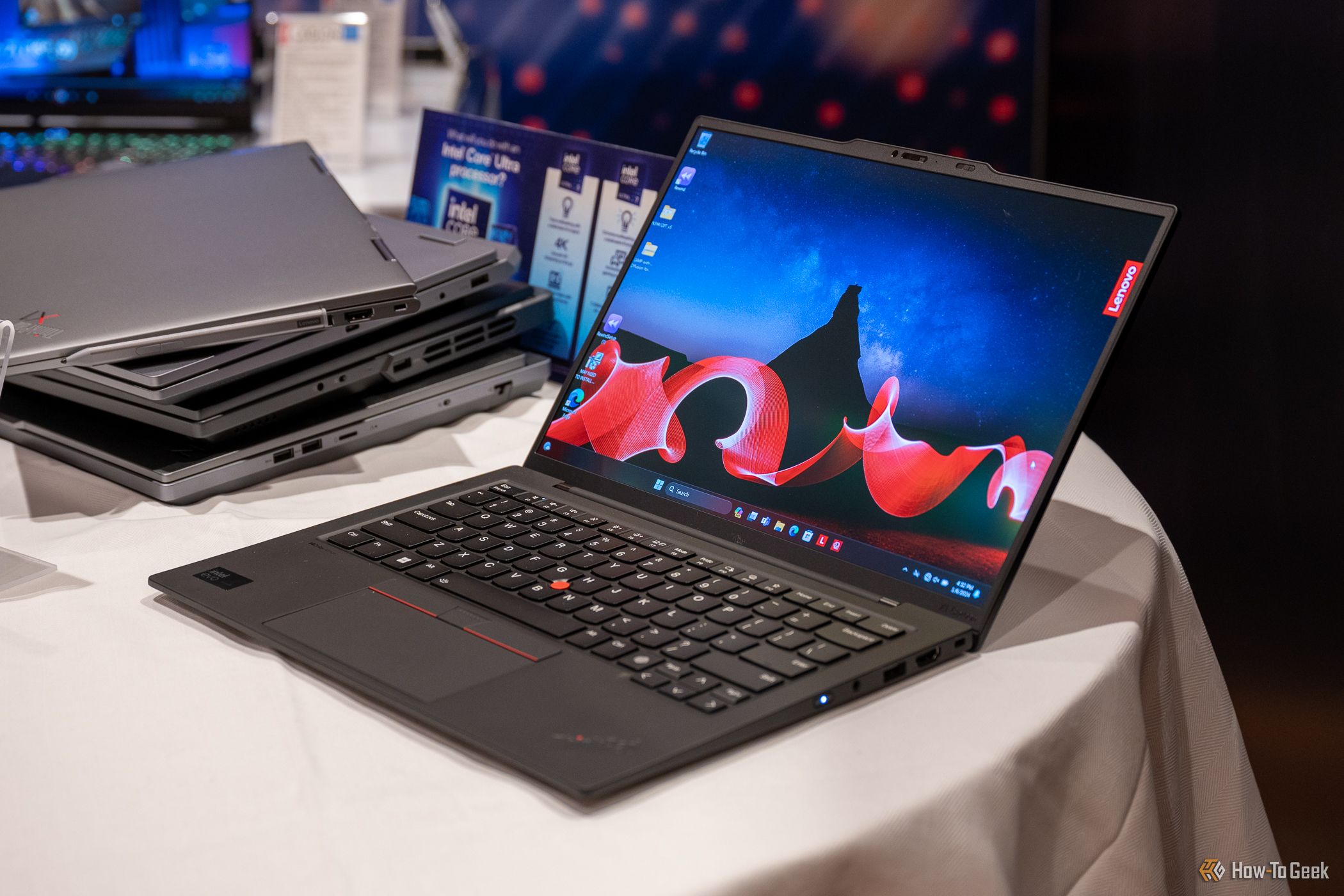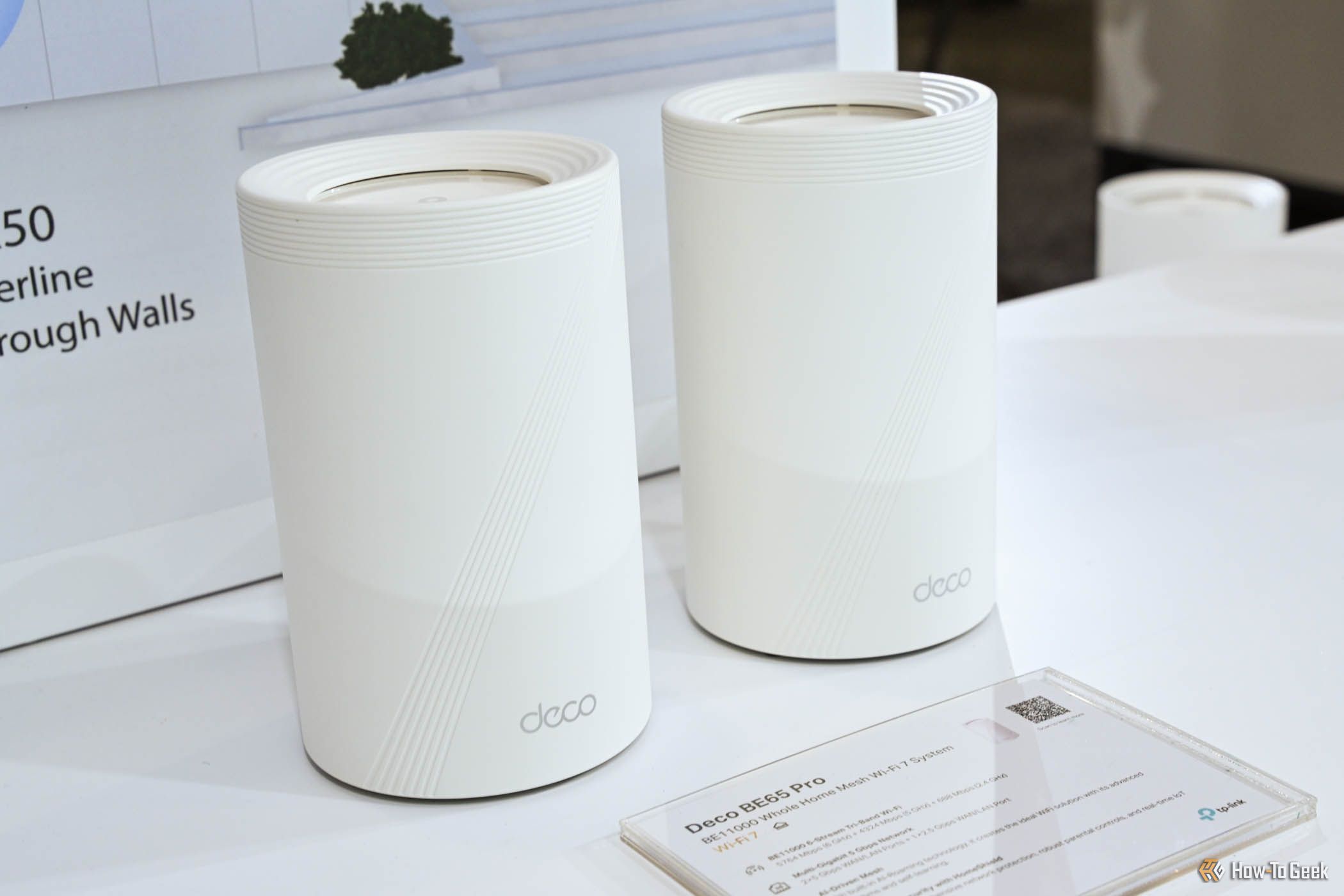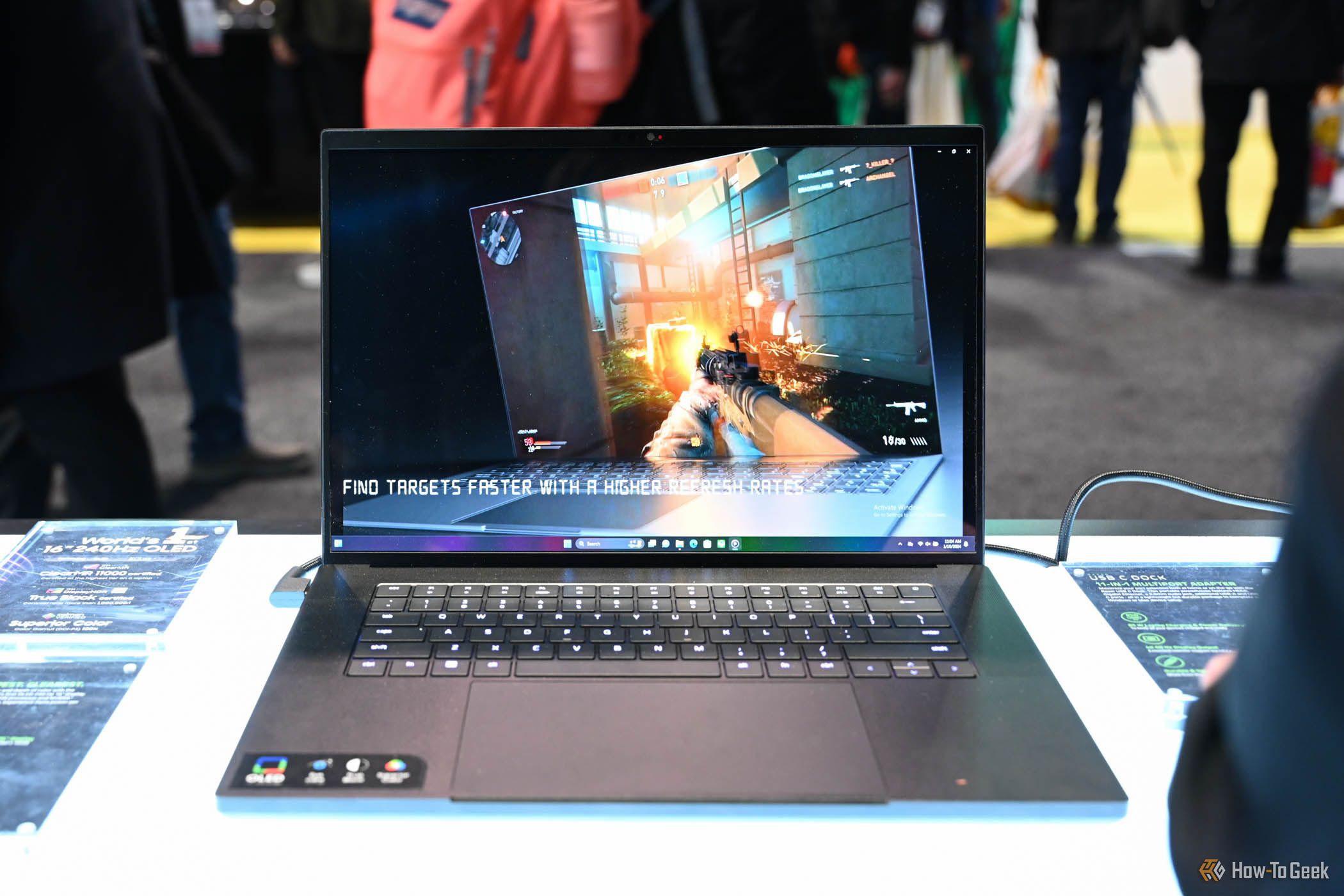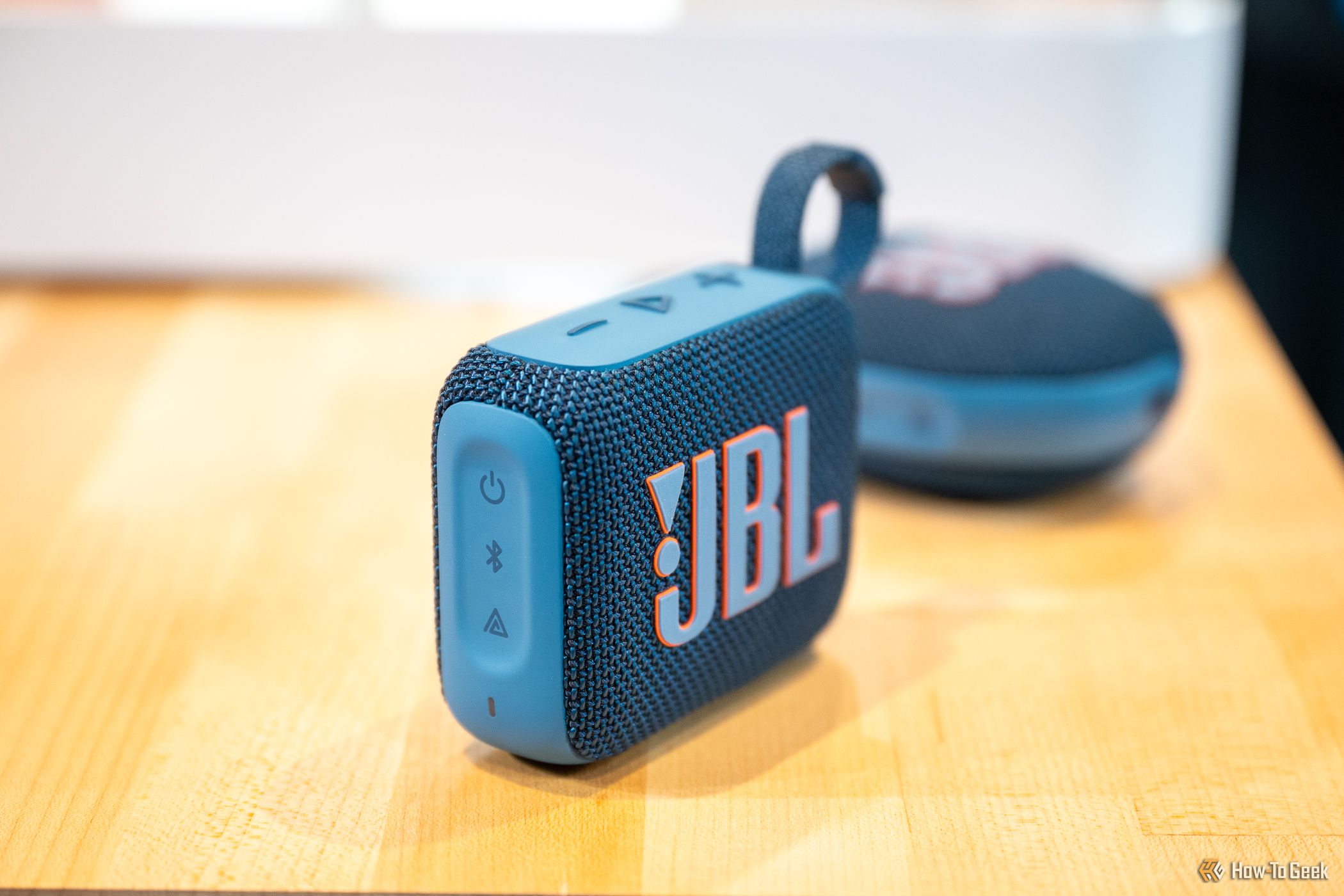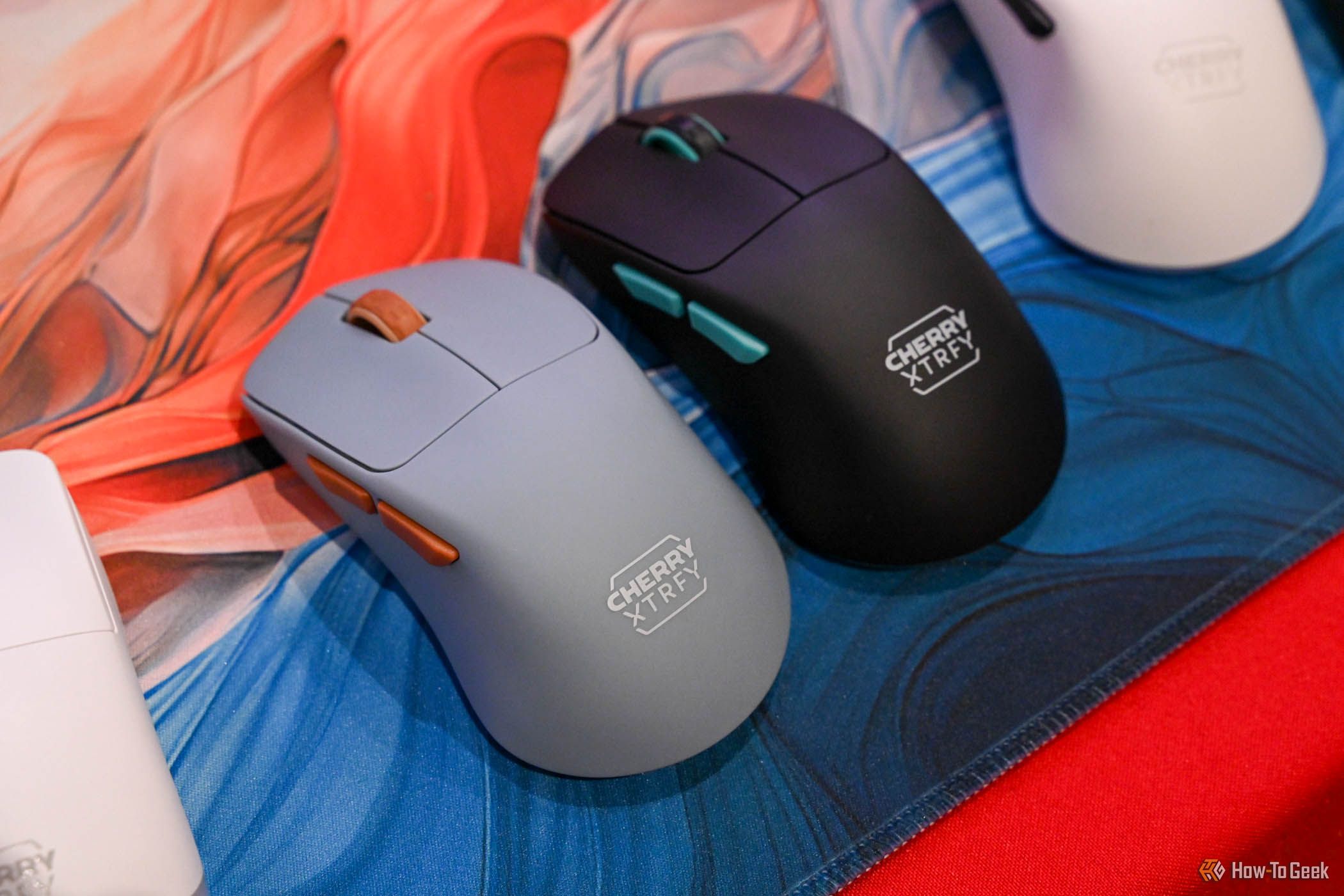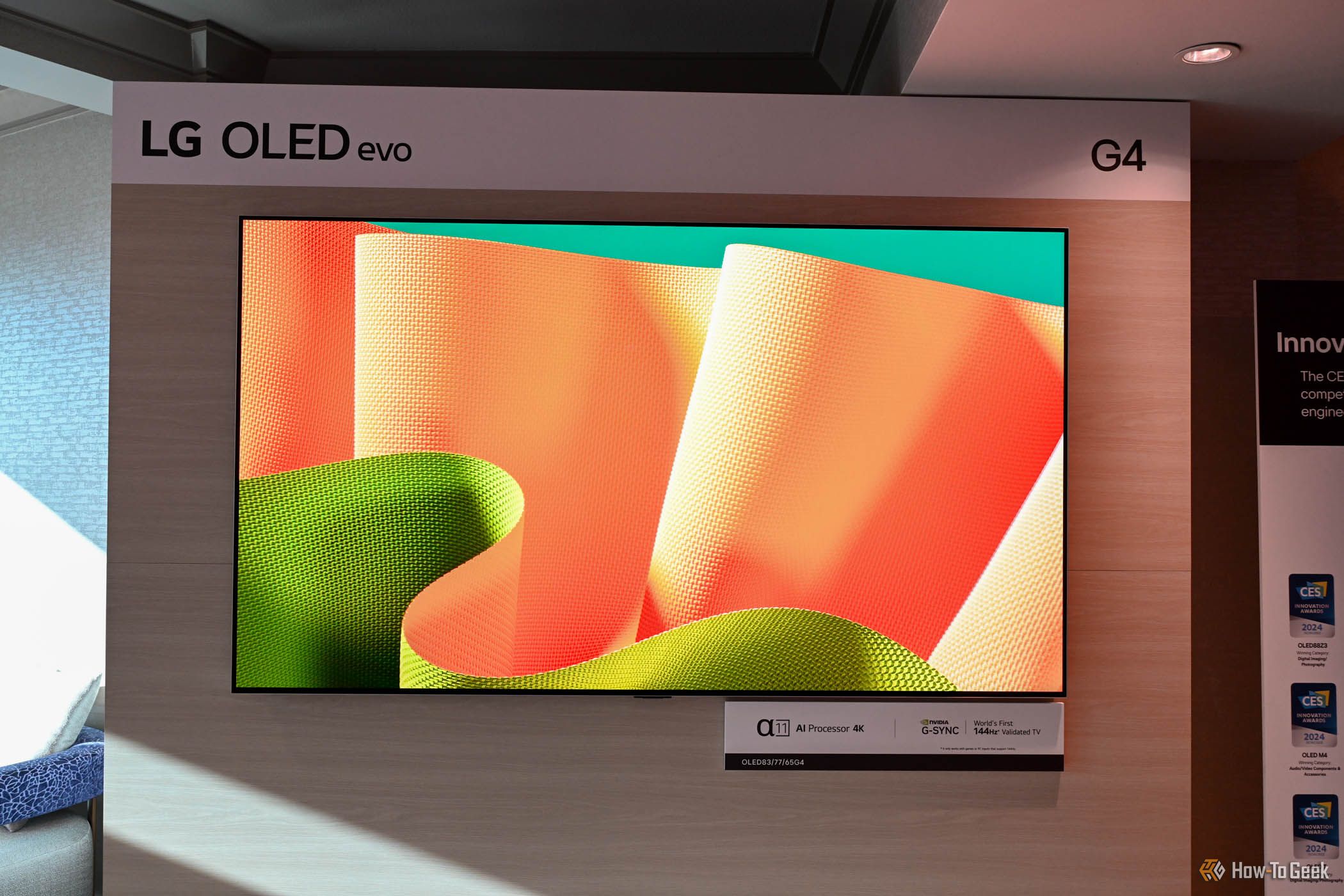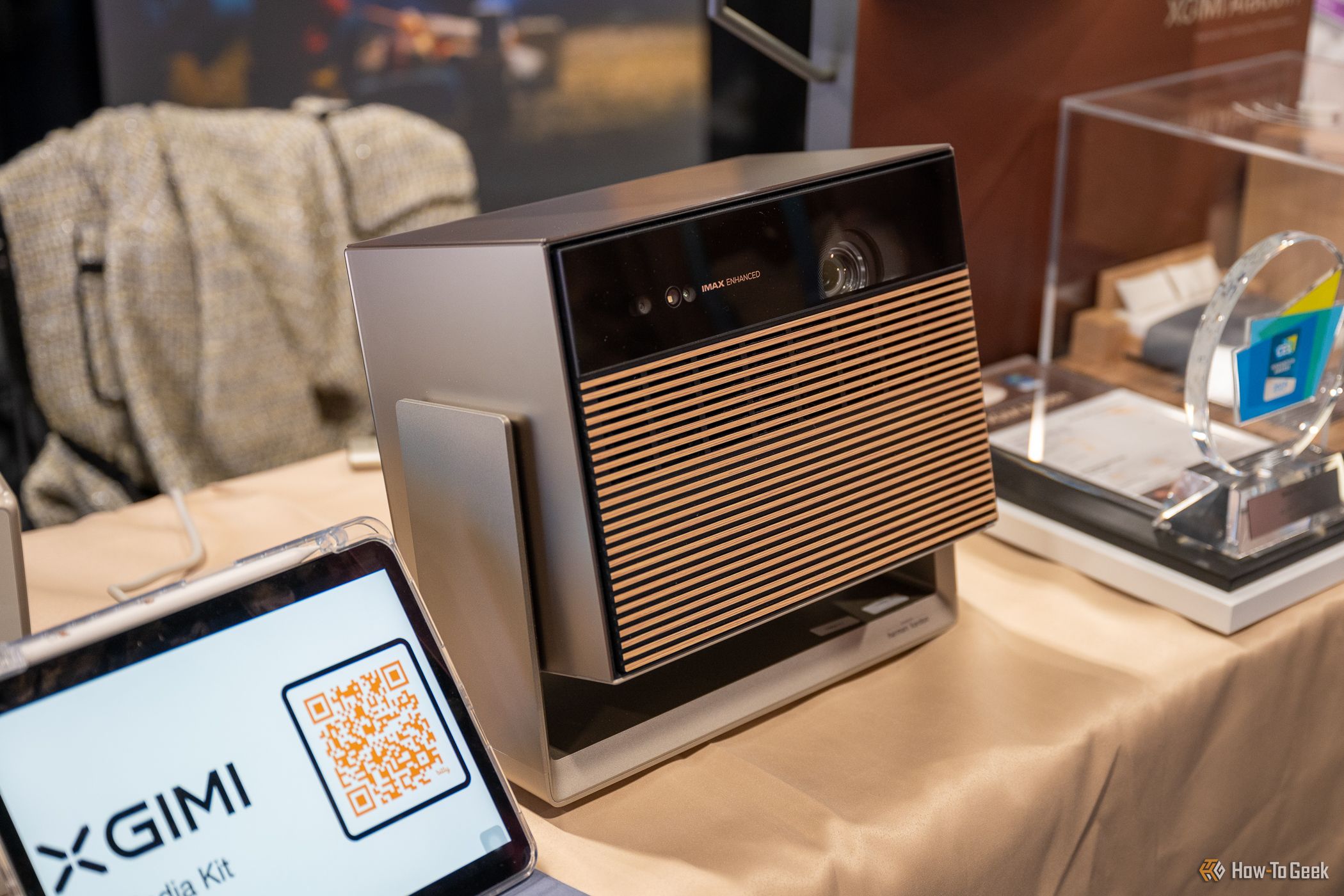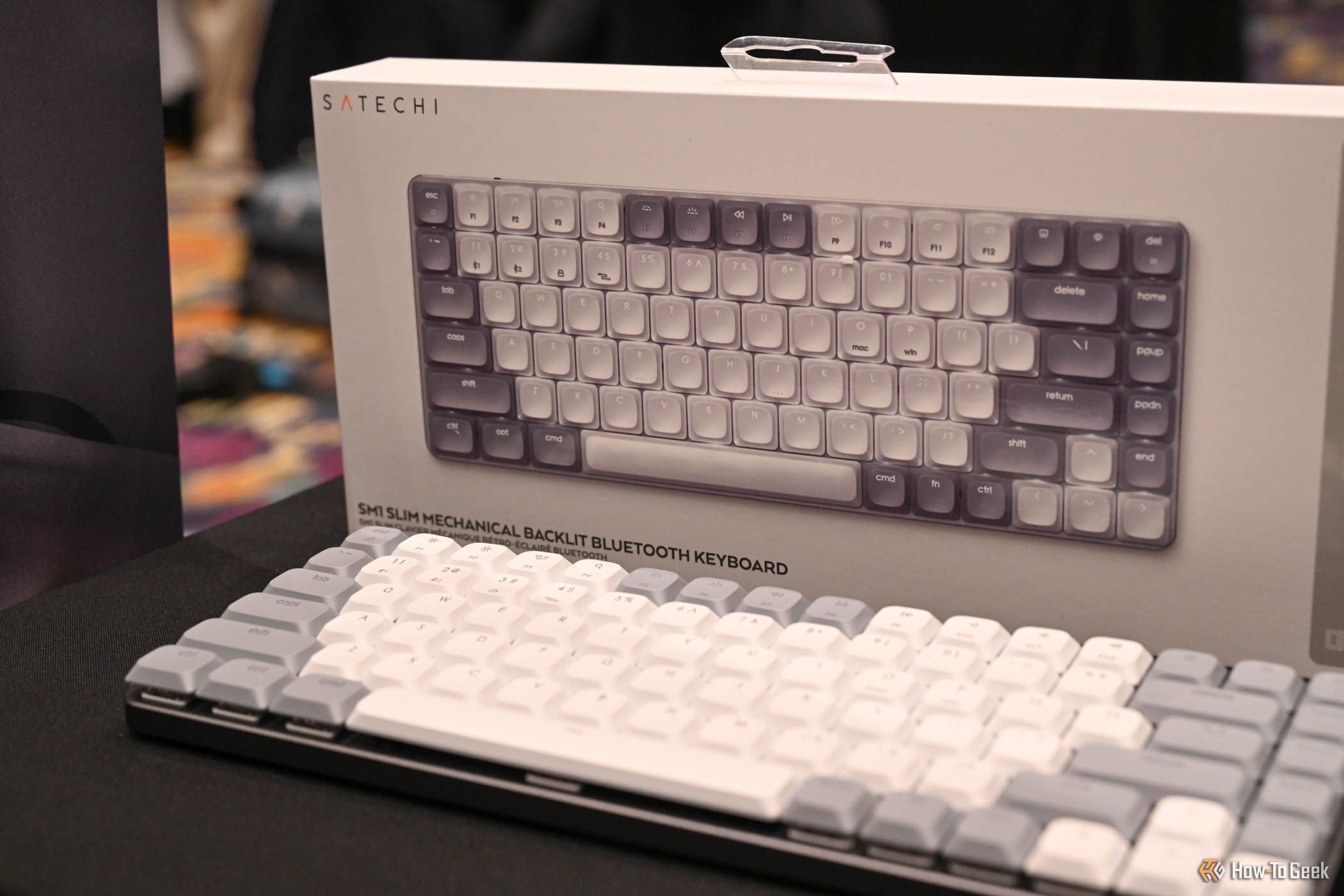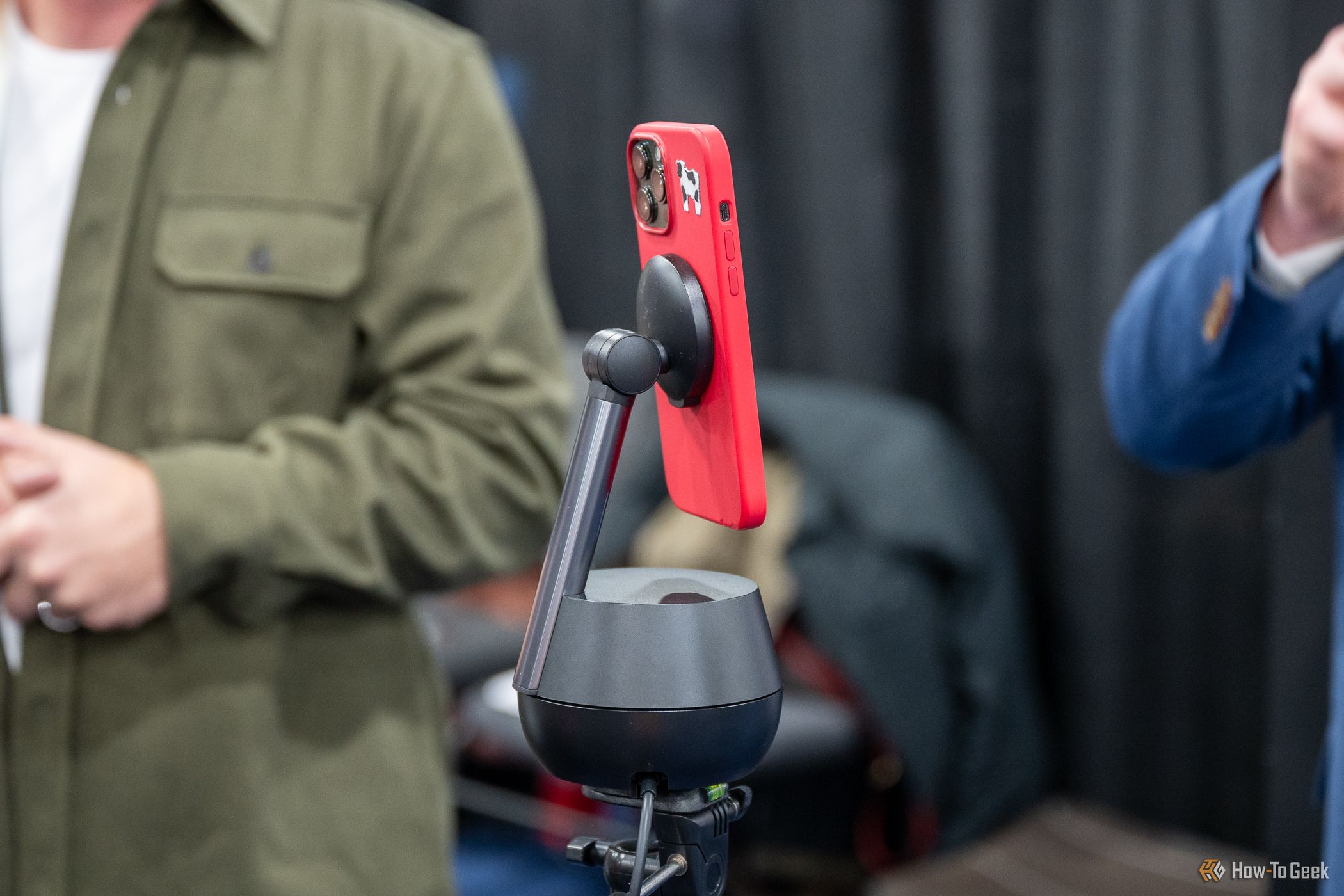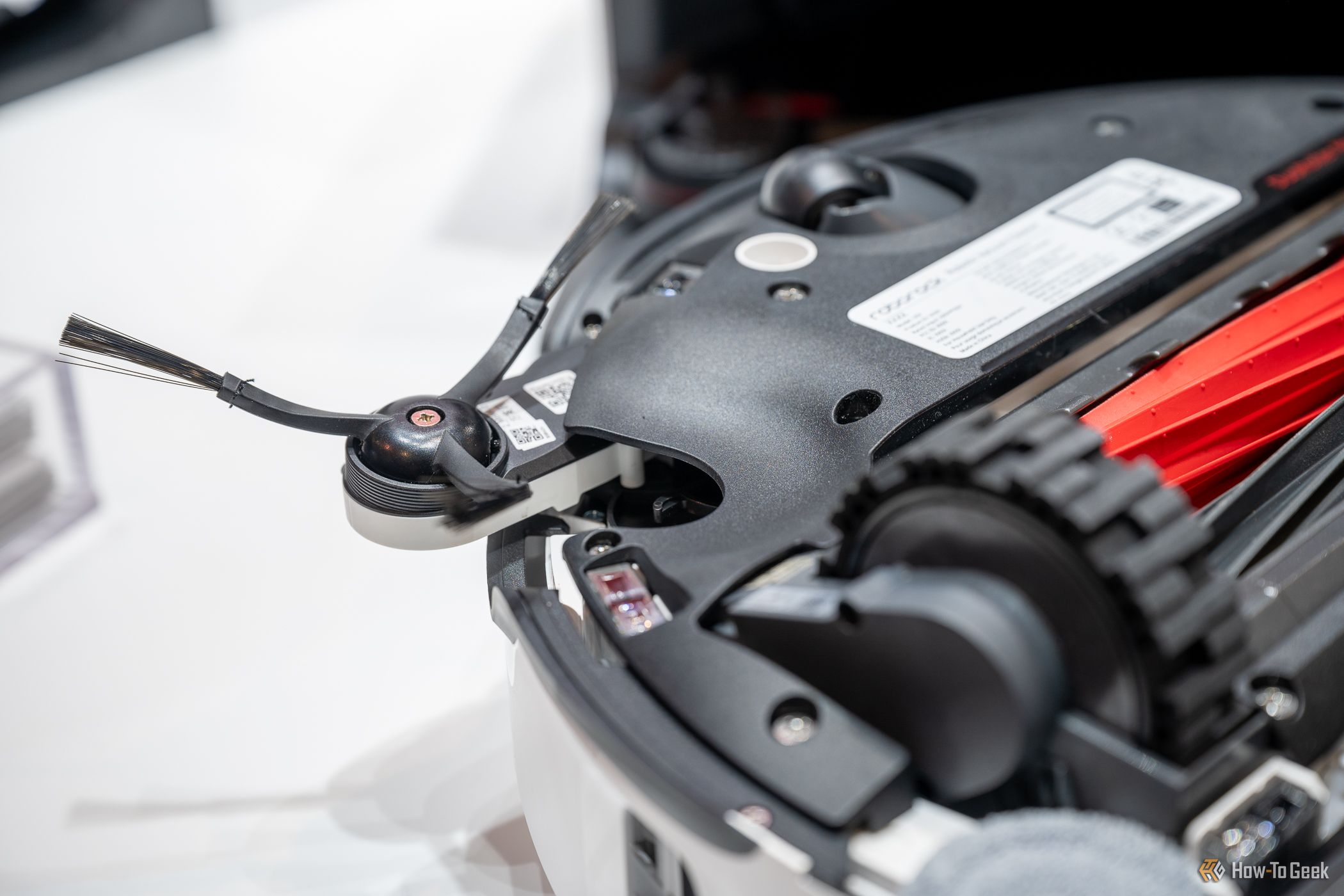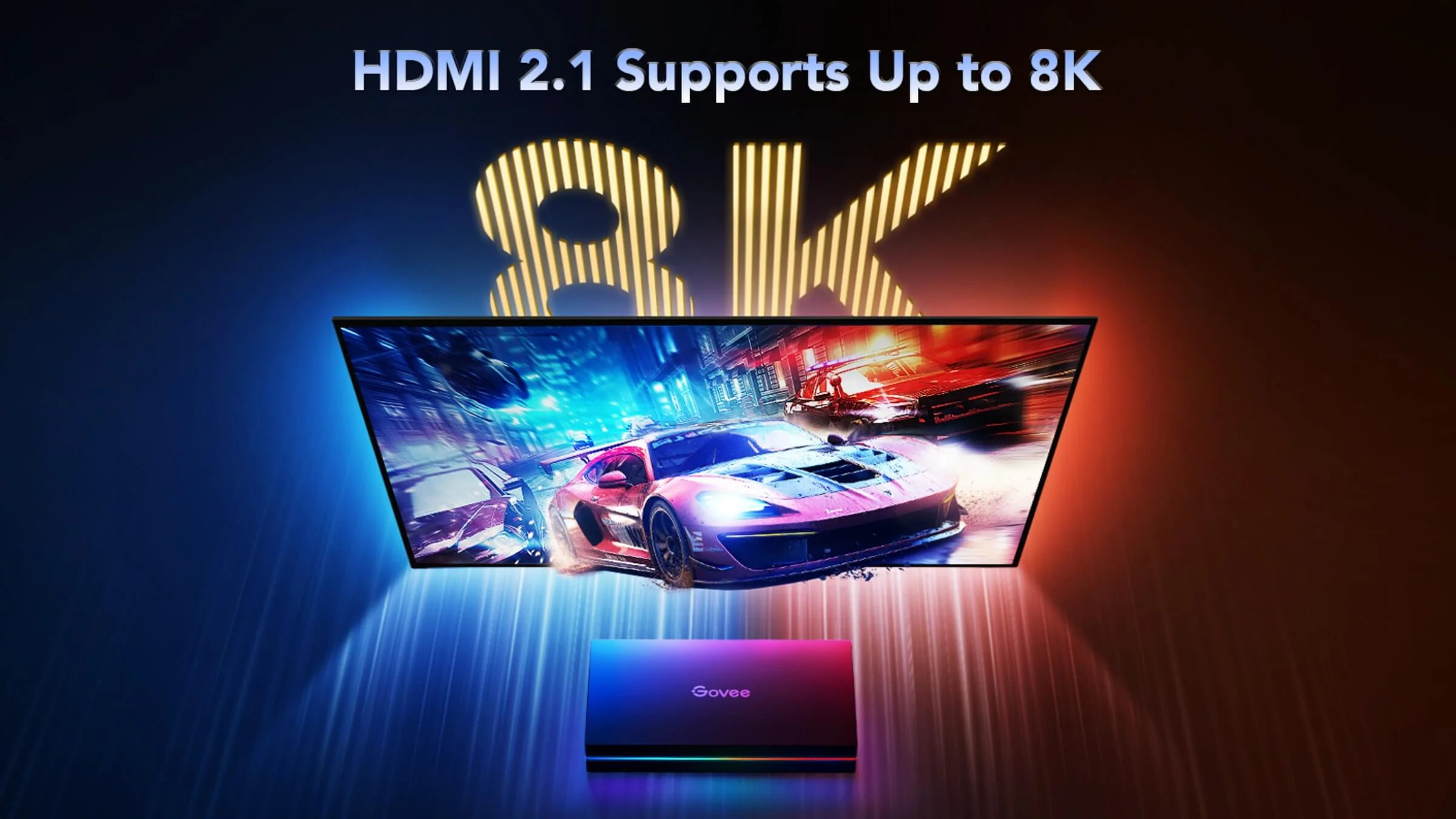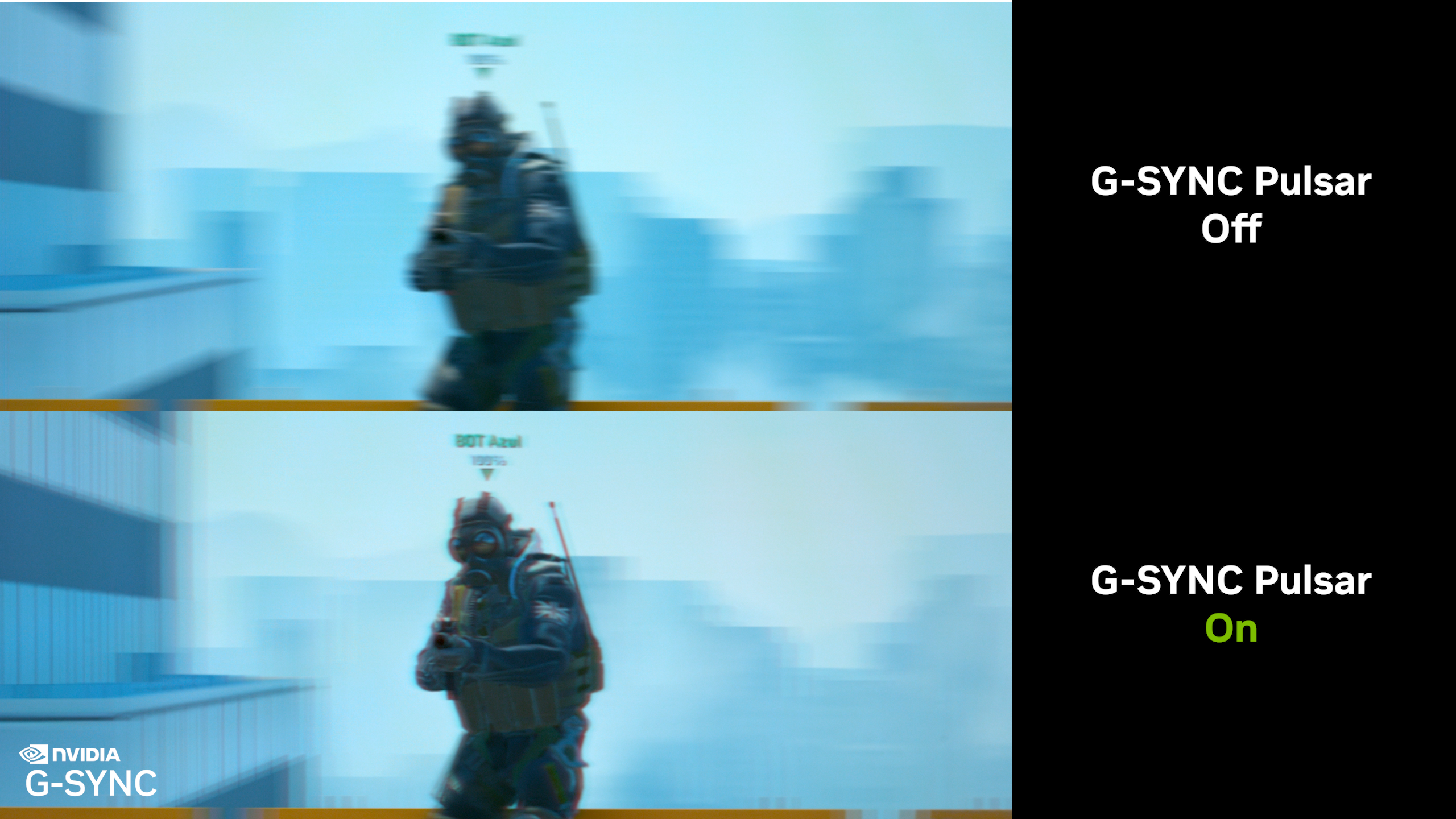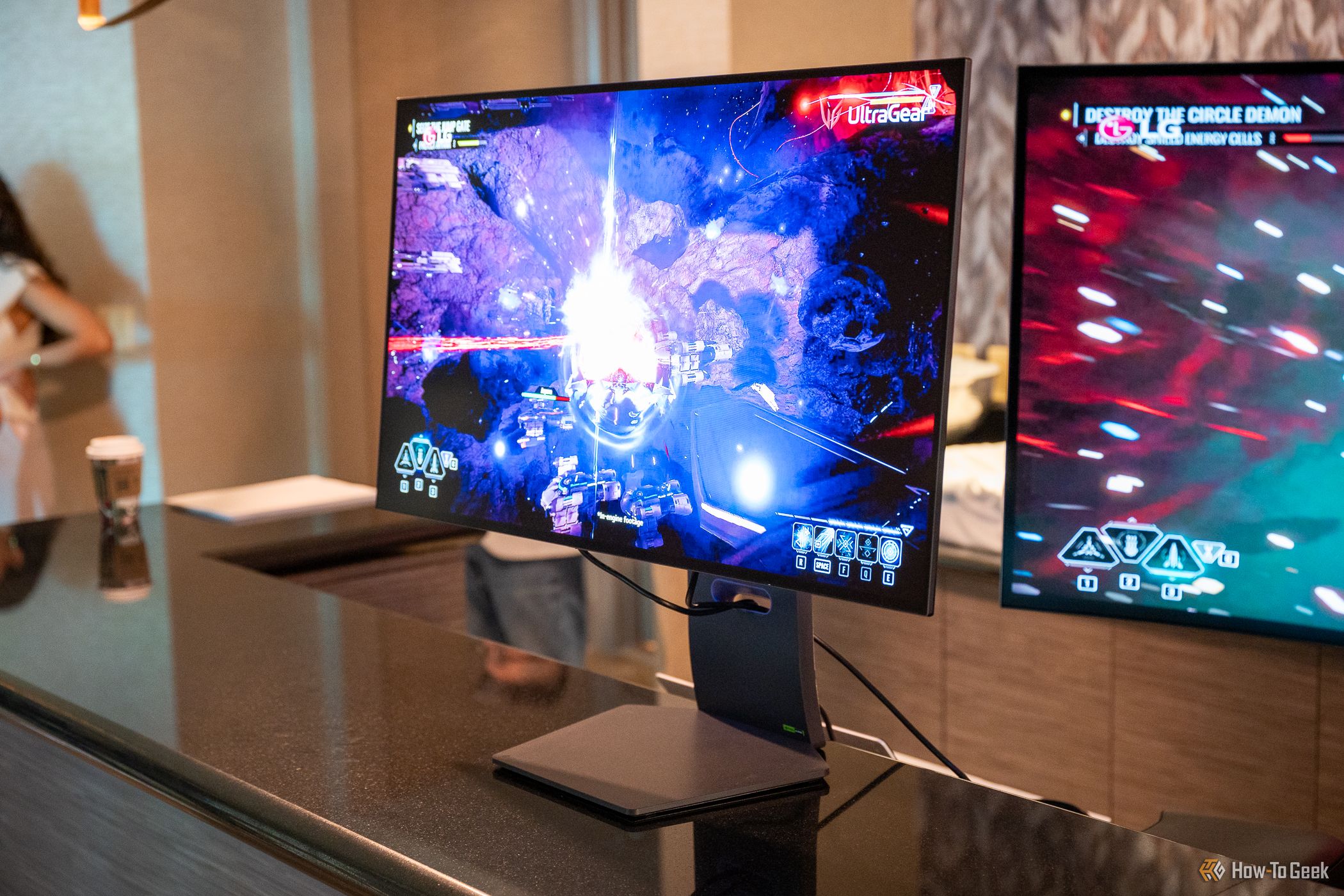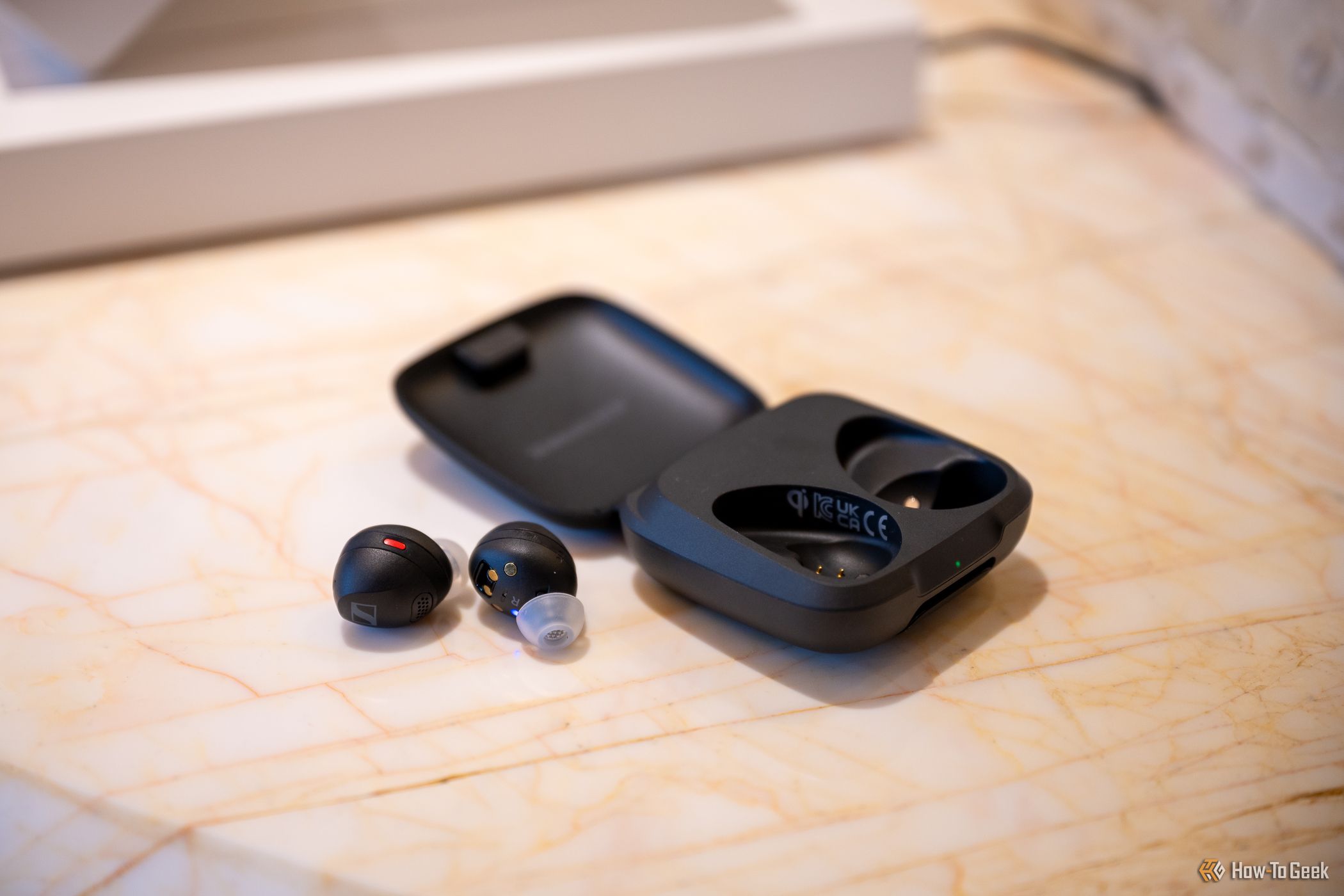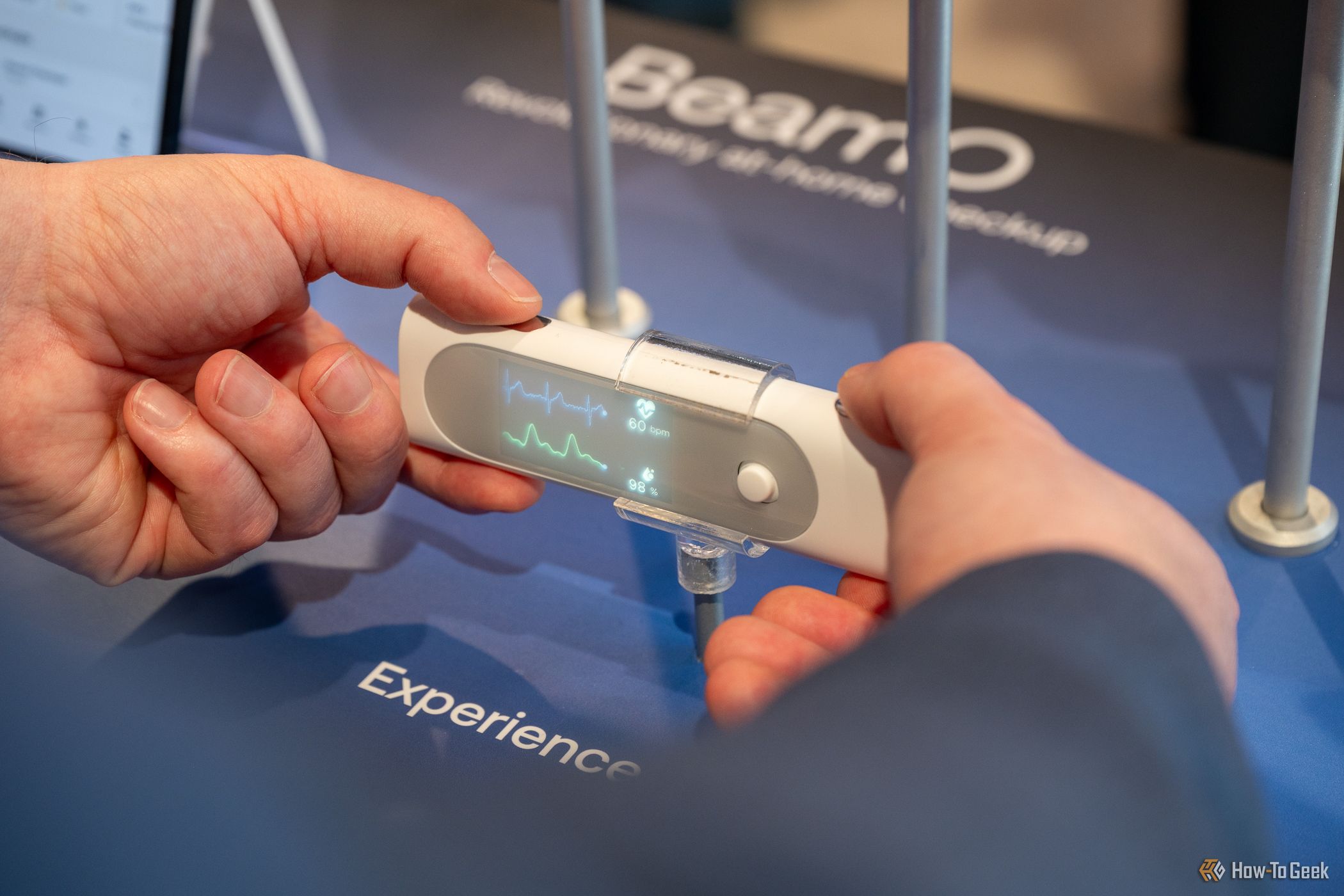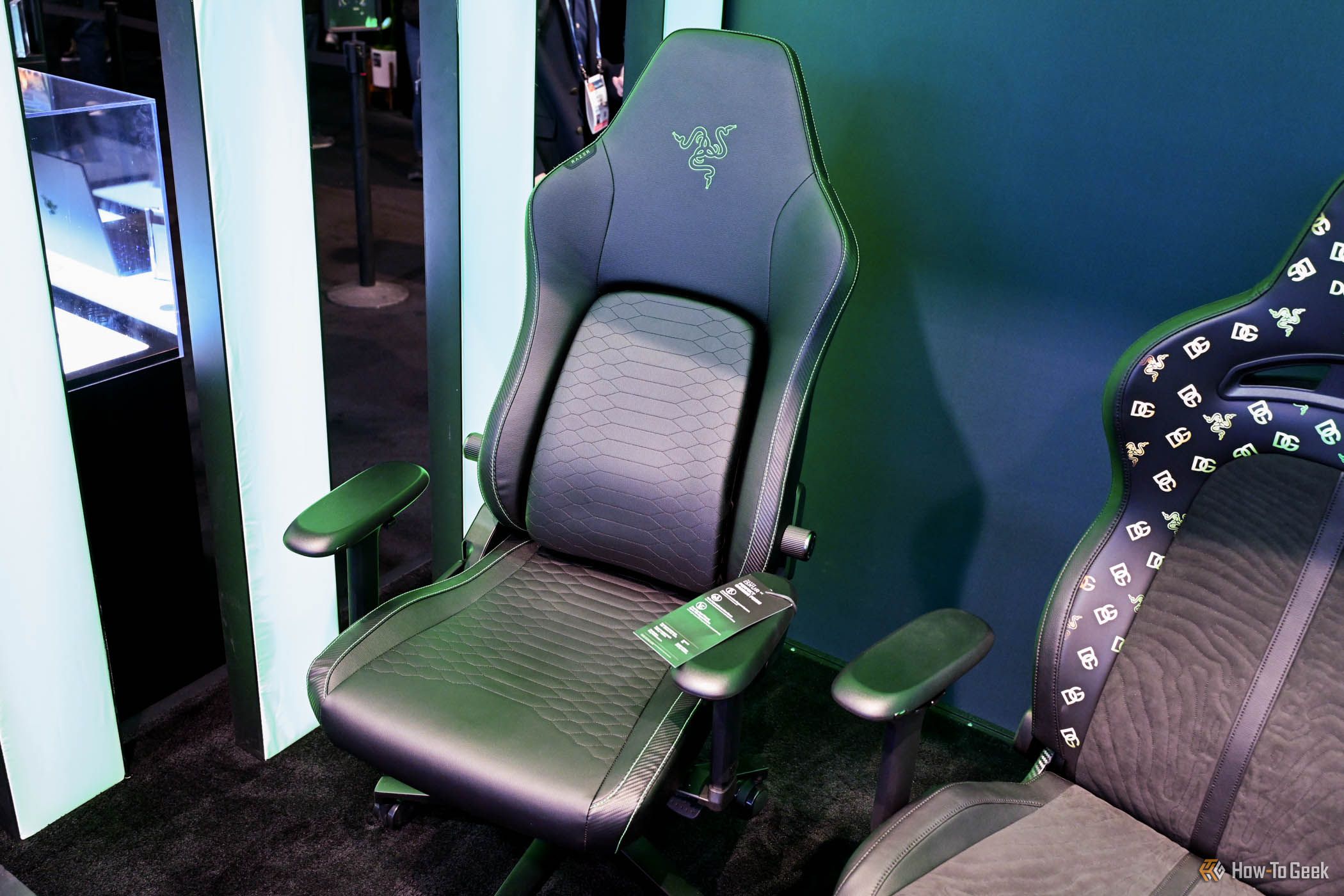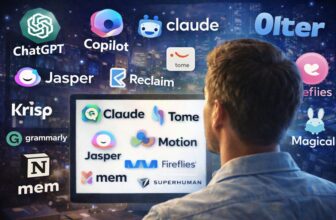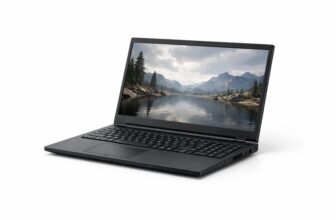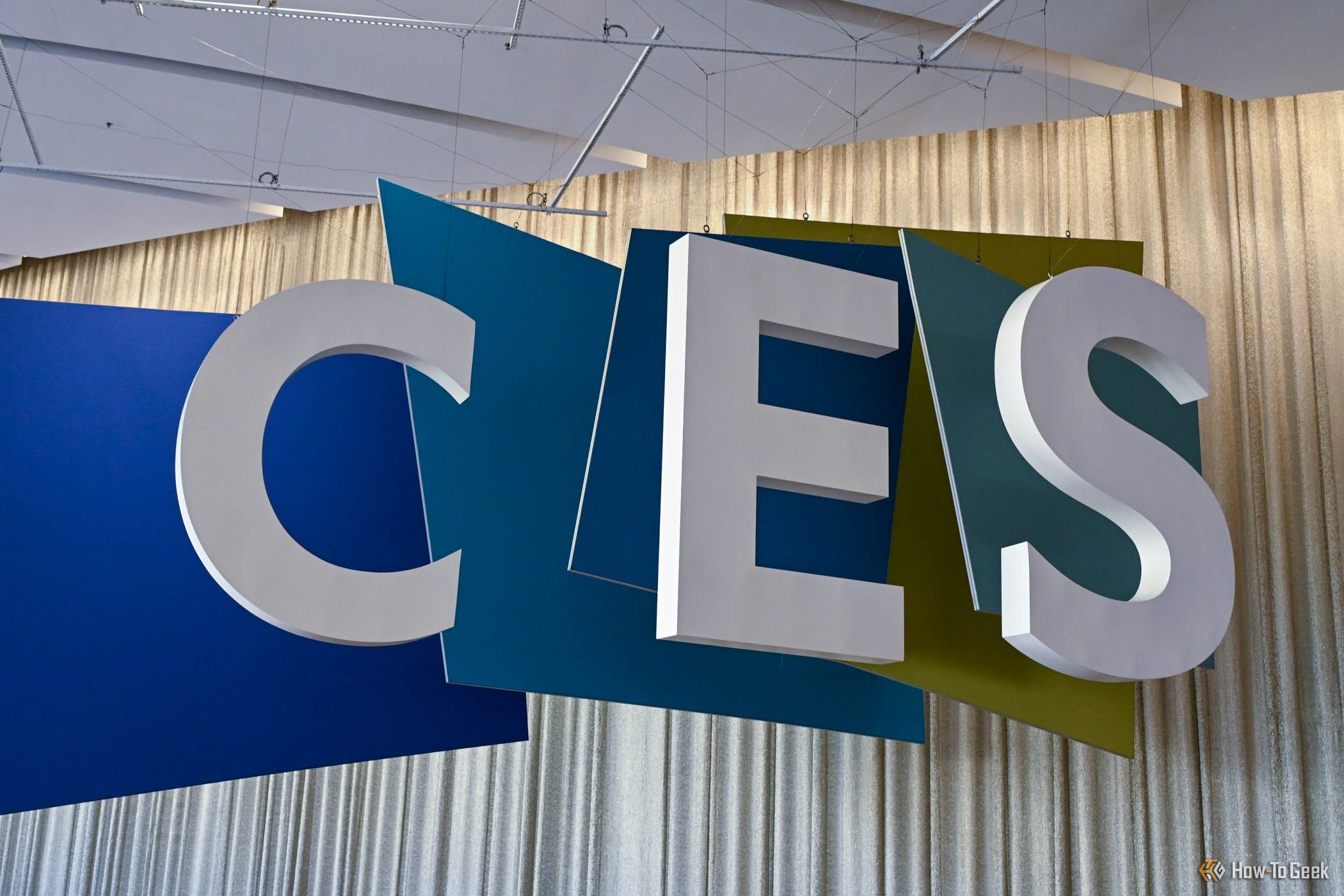
A brand new year means brand new tech being showcased at CES 2024. We were on the ground in Las Vegas, scouring the show floors for cool gadgets and impressive innovations. We’ve highlighted some of our favorite products from the event, giving you a taste of what to look forward to this year.
Best Laptop: Lenovo Thinkpad X1 Carbon Gen 12
Lenovo’s ThinkPad X1 Carbon series combines the best of Lenovo’s laptop design with the build quality and hardware features of the legacy ThinkPad laptops, and the X1 Carbon Gen 12 takes that even further. It’s equipped with the latest Intel Core Ultra processors, up to 64GB RAM, up to 2TB NVMe SSD storage, a fingerprint reader, and a camera privacy shutter. The spacious 14-inch screen can be configured with up to a 120Hz 2.8K OLED touch panel.
The X1 Carbon Gen 12 has a slightly changed design, with accessibility improvements in the keyboard layout, a larger 120mm trackpad (with a haptic feedback option, like Apple’s recent MacBooks). There’s still the same TrackPoint “nub” in the center of the keyboard, and you can even set custom actions for when it’s double-tapped. The laptop has great connectivity options as well, including two Thunderbolt 4 Type-C ports, two USB Type-A 5Gbps ports, HDMI 2.1, an audio jack, Wi-Fi 6E or Wi-Fi 7, Bluetooth 5.3, and optional LTE or 5G.
The new Thinkpad X1 Carbon Gen 12 looks like a fantastic Windows laptop, but it’s also priced to match: it starts at $2,989. Some configurations already went on sale in December, but the rest of the configuration options will be available starting in March 2024.
Best Router: TP-Link Deco BE65 Pro Mesh Router
While wireless devices that support the Wi-Fi 7 standard aren’t common just yet, you can prepare for them with the TP-Link Deco BE65 Pro Mesh Router. A mesh Wi-Fi system is ideal when you need to cover a lot of ground with your wireless network and can’t rely on the weak performance of Wi-Fi extenders. The BE65 Pro system supports a multi-gig network with a 2.5 Gbps WAN port on the base node, along with two Ethernet ports hitting aggregated speeds of 5 Gbps. It also boasts what TP-Link calls “AI-Roaming technology,” promising a seamless experience as you move from room to room with your wireless devices. A mobile yet reliable connection will be critical for using the latest AR headsets and gaming handhelds.
These features complement everything offered by the Wi-Fi 7 standard, whose finalized version was also unveiled at CES this year. That means you can expect to see fully compatible wireless devices entering the market this year. Even if you don’t live on the cutting edge, once available, the TP-Link’s cylindrical mesh units should keep you sitting pretty in terms of wireless capabilities for a long time.
Best Gaming Laptop: Razer Blade 16
Razer sells a lot of gaming laptops, but the Blade series has stood out from the competition for its more subtle design: it fits just as well in a boardroom meeting as a LAN party. The new Razer Blade 16 maintains that look and feel but with even more impressive hardware.
The updated Razer Blade 16 has a 16-inch OLED panel with a refresh rate of 240Hz, giving you super-smooth gameplay with deep blacks and vivid colors. It’s also using the new Intel Core i9-14900HX processor and can be configured with up to an NVIDIA GeForce RTX 4090 graphics card. That gives you a lot of power for demanding productivity work and gaming.
The new Razer Blade 16 might be the Windows laptop to buy if you want the best graphics performance possible in a sleek and minimalist form factor. It’s definitely expensive, though, with a starting price of $3,000. You can buy it today from Razer’s website.
Best Bluetooth Speaker: JBL Go 4
JBL makes some of the best portable Bluetooth speakers on the market, and it announced a few new models at CES. The JBL Go 4 is its new small, portable speaker with Auracast technology, which lets you connect multiple speakers together for a bigger sound. The Go 4 has a cute rounded-rectangle design with a sturdy strap, and it’s available in six colors.
It’s often hard to get a sense of audio quality at trade shows, but our own Jason Fitzpatrick had a chance to try out the JBL Go 4. He said, “The Go series has always sounded pretty solid for its size, but the Go 4 is surprisingly good” and “The first palm-size Bluetooth speaker I’d actually consider regularly using.”
JBL says the Go 4 is rated for 7 hours of battery life. It’s IP67 rated, has Bluetooth 5.3, and Bluetooth LE audio. It will be available in June for only $50, which is $30 cheaper than the JBL Clip 5, the company’s slightly larger portable speaker.
Best Mouse: Cherry M64 Pro Wireless Mouse
Already acclaimed for its mechanical keyboard switches, CHERRY acquired a Swedish esports gear manufacturer in 2023 to form the CHERRY XTRFY gaming brand, and its debut releases were on display at CES this year. Well, we liked what we saw, with the M64 Pro taking our pick for the best mouse at the show.
Designed with input from professional esports players, the M64 Pro features a slender and ergonomic design and launches alongside the M68 Pro, a symmetrical model with identical specs otherwise. We definitely preferred the ergonomic design, which felt very comfortable in the hand. You could say it had good mousefeel.
Marking XTRFY’s sixth generation of mice (though this is the first under the CHERRY XTRFY brand), the M64 Pro offers better grip and control than previous M4 and M8 models while cutting the weight to an airy 55 grams.
The highlight feature, though—and what separates the pro mouse from its non-pro counterpart—is its 8,000Hz polling rate. Most gaming mice only offer 1,000Hz, making the M64 Pro up to eight times more responsive. That means smoother cursor movement, sharper control, and some of the lowest click latency ever measured on a wireless gaming mouse.
Launching alongside keyboards, microphones, and other CHERRY XTRFY gaming gear, the M64 Pro will be available for $139 in Q2 of 2024.
Best TV: LG G4 OLED
LG smashed it out of the park with 2023’s G3 TV, which garnered high praise for its microlens array (MLA) technology, bringing impressive brightness to OLED panels. It’s still our pick for the best OLED TV, but that’s set to change with the release of the G4, which caught our eye at this year’s show.
Building on the stunning 4K picture quality of last year’s model, the G4 ups the variable refresh rate to 144Hz and promises even more improvements thanks to LG’s latest AI-powered processor, the a11.
LG says the a11’s AI performance is four times better than previous processors, resulting in 30% faster processing speed and 70% better graphic performance. The AI within this chip is used to sharpen images, both in the foreground and background; refine the colors, saturation, and contrast; enhance the audio for a bigger sound with clearer dialog; and more.
Of course, you’re free to disable any of this if you please—the non-AI-enhanced panel is still one of the best-looking TVs around, which is why we like it.
LG hasn’t revealed the price or release date for the G4 OLED yet, but last year’s model was released in March and started at $2,300. The G4 will range in sizes from 55 inches all the way up to 97 inches, though the very top size lacks the MLA technology.
Best Projector: Xgimi Horizon Max
XGIMI took to CES to unveil the XGIMI Horizon Max, a long-throw projector that is the first to have IMAX Enhanced Certification. This means that the projector can deliver the best possible picture and sound quality, as well as work with IMAX Enhanced content. The XGIMI Horizon Max boasts a 4K resolution, a bright 3,100 ISO lumens, a high 2,000:1 contrast ratio, and a huge screen size of up to 180 inches.
The XGIMI Horizon Max is also a smart projector that will run on Android TV/Google TV, which will make it easy to access thousands of apps and streaming services. Our own Andrew Heinzman was at CES and had this to say about the projector: “An excellent looking projector. The extreme brightness, long throw ratio, motorized gimbal, and automatic keystone features are perfect for large home theaters or small venues. It’s a substantial upgrade from the Horizon Ultra, which was already great in its own right.”
XGIMI says the Horizon Max is scheduled for a late 2024 release, and while it didn’t share specific pricing details, it will cost less than $3,000.
Best Keyboard: Satechi SM1 Slim
You might not think of CES as a show for computer keyboards, but there’s a big market for high-quality accessories. The Satechi SM1 Slim keyboard is a wireless mechanical keyboard with a low-profile design. It features low-profile brown switches, which offer the best of red and blue switches—meaning tactile but quiet. The keyboard also has a sleek aluminum enclosure, removable keycaps, and adjustable feet for comfort and stability.
This keyboard is designed to work seamlessly with both Mac and Windows devices, as well as Android, iPhone, and iPad, thanks to its Bluetooth 5.0 connectivity and swappable keycaps. It can also connect to four devices at a time, making it easy to switch between them. The keyboard has a white backlight with 14 different patterns to suit your mood and environment. The rechargeable battery can last up to 16.5 hours with the backlight on or a whopping two months without it.
The Satechi SM1 Slim keyboard retails for $99.99, but the company is offering 20% off for CES with code “CES20” if you’re interested in buying it right now.
Best Smartphone Accessory: Belkin Auto-Tracking Stand Pro
The new Belkin Auto Tracking Stand Pro is a battery-powered phone stand with facial tracking, but it’s better than others who’ve tried something similar. Not only did it work flawlessly, but it doesn’t need a companion app to work with the iPhone. It’ll do face tracking right inside the stock iPhone camera app.
Our Editor-in-Chief gave it a try, and here’s what Jason had this to say: “Not only did the Auto-Tracking Stand Pro impress me with the flawless side-to-side and up-and-down pan movements, but it stayed laser-locked onto me even despite the crowd of people watching me use it.”
This 360-degree swiveling phone stand is impressive. Once it identifies your face, it tracks you with ease. It’s perfect for video calls, work meetings, content creation, or being a webcam for your Mac. The Belkin Auto Tracking Stand Pro is a bit more expensive than your traditional phone stand, costing $180, but it has a 5-hour battery life, and when it’s plugged in, you’ll get 15W wireless charging for your phone. Grab yours from Belkin’s website at the end of January.
Best Robot Vacuum: RoboRock S8 MaxV Ultra
Robot vacuums have gotten progressively more advanced over the years, and now Roborock is taking things up a notch with appendages. The RoboRock S8 MaxV Ultra was announced at CES with a small flip-out arm. While it’s not a literal arm that can pick up items that are in the way (yet), this can help the vacuum reach those tough spots.
The arm pushes the typical robot vacuum spinning brush out farther away from the body, which should help it get into corners. There are also mops for cleaning hard floors on the back, and they can also stick out to reach nooks and crannies. Guiding the cleaning are cameras on the front and back, along with a new voice assistant called “Rocky.” It’s a similar idea to Ecovacs’ “Yiko” assistant.
One other pretty cool feature is the option to buy a base station that can be connected to your home’s plumbing. That means you’ll never have to refill or drain the mopping tanks. Our Justin Duino was at the show to check out the vacuum, and he had this to say: “Being able to auto-refill the water tank and dump dirty water through your home plumbing takes even more work off of your home cleaning responsibilities. Add in the extendable brush arm, and the S8 MaxV Ultra should keep your home looking as clean as possible.”
As expected, all this tech comes at a price. The RoboRock S8 MaxV Ultra costs $1,800 and will be launching in April.
Best Smart Lighting: Govee AI Sync Box Kit 2
Govee is a household name in smart lighting, and their lineup at CES 2024 doesn’t disappoint. We were particularly impressed with their AI Sync Box Kit 2, which includes the sync box itself, a light strip, and two bar lights.
Unlike some ambient light setups that rely on a camera, the Govee AI Sync Box 2 connects to your GPU (or game console) via HDMI to tap into the video data directly. Directly using the video data allows for a marked improvement over older ambient lighting systems that rely on a camera pointed at your display. As our Editor-in-Chief Jason Fitzpatrick put it: “Nothing beats pulling the color data right from the stream.” The AI Sync Box 2 then leverages AI to generate lighting effects based on what is displayed on your screen, and even comes with special effects built-in for more than 30 popular games.
Critically, the AI Sync Box 2 supports 4K passthrough at 120Hz or 8K at 60Hz. Given that most gaming hardware struggles to produce 120 frames per second at 4K, that isn’t likely to be a significant limitation any time soon.
Govee has promised an update for later in 2024 that will bring Matter support, which should make it easy to get your AI Sync Box 2 working with your other smart appliances.
Best Gaming: NVIDIA VRR Pulsar
NVIDIA G-Sync has helped improve high refresh rate gaming for years, with improved clarity and motion above 60Hz on supported monitors, gaming laptops, and TVs. Now, NVIDIA has created an updated version: G-Sync Pulsar.
G-Sync Pulsar is billed as the “next evolution” of Variable Refresh Rate (VRR) technology, improving motion clarity to over 1000Hz. It also ditches the separate options for smooth variable refresh or Ultra Low Motion Blur (ULMB), as NVIDIA says Pulsar can deliver all the benefits of both options.
Our Jason Fitzpatrick had a chance to go eyes-on and had this to say, “It’s something that you need to see in person to really appreciate, but the VRR Pulsar tech really does an astounding job smoothing the image. You don’t realize how much smearing there is on even a really nice monitor until you see it with the VRR enabled.”
NVIDIA G-Sync Pulsar will debut on the ASUS ROG Swift PG27 Series G-SYNC gaming monitor, arriving later in 2024.
Best Computer Monitor: LG 32″ Ultragear Dual Mode OLED
LG has refreshed its lineup of OLED gaming monitors for 2024, and the 32GS95UE is leading the pack. The 32GS95UE boasts a 32-inch, OLED 4K display, which results in fantastic clarity and contrast performance, but it also has a unique twist that is going to be exceptionally useful for gamers.
Historically, OLED monitors have lagged behind competing display technologies when it comes to refresh rates, forcing you to choose between the visual fidelity of an OLED screen and the snappy refresh rates of LCDs.
This year, LG has included a feature called Dual-Hz. You can instantly switch between a 4K resolution with a maximum refresh rate of 240Hz and a 1080p resolution with a maximum refresh rate of 480Hz with the press of a single button, making the monitor suitable for both “cinematic” and competitive gaming.
LG’s 32GS95UE also includes special speakers built into the display itself, support for FreeSync and G-Sync, and HDMI 2.1 and DisplayPort 1.4 connectivity.
Best Audio: Sennheiser Momentum Sport Earbuds
Sennheiser MOMENTUM Sport come equipped with a heart rate monitor and body temperature sensor, which can interface with a range of fitness apps, allowing you to optimize your workout and analyze long-term fitness trends. They also have other features we’ve come to expect from high-end earbuds, including adaptive noise cancellation, a transparency mode, and IP55 certification. Above and beyond the fitness tracking features, the earbuds deliver the kind of excellent sound quality Sennheiser is known for.
The earbuds themselves are rated for 6 hours of use, and the case packs enough power to fully charge them three times. The case can be charged wirelessly with any Qi-compatible wireless charger or via USB-C. Charging over USB-C enables a quick charge function, which Sennheiser claims will get you 45 minutes of listening time after only 10 minutes of charging.
Sennheiser’s MOMENTUM Sport earbuds will be available on April 9th, 2024, for $329.
Best Health: Withings BeamO
The all-new $250 Withings BeamO is a multiscope of sorts and a 4-in-1 health tracking tool that fits in your palm. This isn’t your average thermometer, as it also features a stethoscope, an EKG for electrocardiograms, and a pulse oximeter to read blood oxygen levels.
Like Withings’ other thermometers, the BeamO features a contactless system thanks to second-gen infrared temperature sensors. Then, there are those green LED PPG sensors found on smartwatches to track your heart rate and electrodes on the side for taking EKG readings. Doing all of that, plus having a stethoscope, makes this a pretty nifty device.
More importantly, during Telehealth sessions, you can stream audio from the stethoscope directly to your provider. While none of these measurement tools are new or novel, getting all four in one relatively affordable device makes it a great all-in-one health tool for families.
The EKG still needs to clear all those FDA processes, but Withings is aiming for a June release date for its “thermometer of the future.”
Best Office: Razer Iskur V2
As a mostly remote team, we here at How-To Geek greedily seek out the most comfortable office gear, and the Razer Iskur V2 gaming chair caught our eye at CES 2024. Our Editor-in-Chief, Jason Fitzpatrick, took a seat and said despite the gimmicky sound of the adaptive, omnidirectional lumbar support, it was unbelievably good. No matter how you shift in your seat, it cradles your back and keeps the lumbar support centered.
Other features to help you stay comfortable include armrests adjustable in four different directions, a removable memory foam head cushion, and a “frog tilt” system that responds to you as you lean forward or back. Compared to the V1, this generation of the Iskur gaming chair substitutes the PVC leather material with EPU-grade faux leather intended to last longer, and the recline angle has been increased from 139 degrees to 152 degrees.
You can buy the Razer Iskur V2 now for $649.

